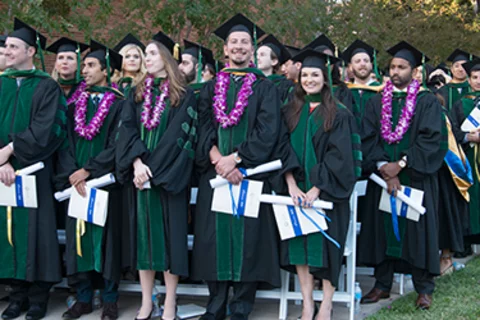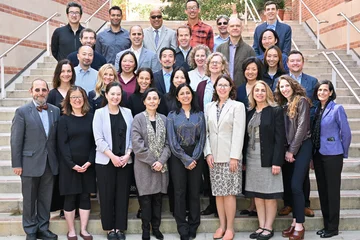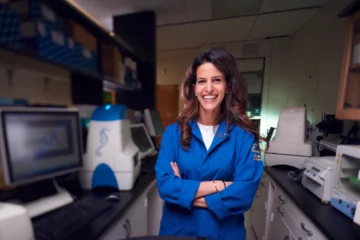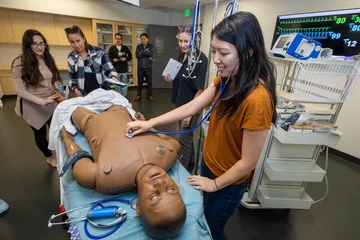There Are Lots of Option to Pursue After Graduating From Med School
After four demanding and rewarding years of medical school, graduation is an exciting time as students prepare to move on to the next stage of their medical careers. But what comes after medical school?
A Wealth of Opportunites
The next steps vary widely. Graduates of the David Geffen School of Medicine at UCLA may go on to residencies or internships, perform an additional year of research or pursue a master's degree, among many other options.
Entering Residency After Medical School
Residency is a common next step after medical school. Students in their fourth year begin to apply to residency programs through the Match (National Resident Matching Program). Daniel Croymans, MD, completed a UCLA dual degree, getting a Master of Business Administration (MBA) from the UCLA Anderson School of Management in addition to his medical degree, before matching into the UCLA Internal Medicine Program. His immediate goal is to complete the three-year residency and then pursue a career as a provider and physician leader.
"After residency, I hope to improve systems of care, with a long-term goal of helping to transform our healthcare system into one that treats disease and creates a culture that encourages ownership over personal health," he says.
In July, the new Gold Humanism Honor Society inductees began holding monthly chapter meetings to plan the upcoming year's projects and activities.
Ashley Kita, MD, another UCLA graduate, completed a surgical internship after graduation and is now in her second year of a head-and-neck surgery residency. Although she loves her career, she says that the next steps after medical school bring a new kind of pressure.

"The hours I have now have been far longer than in medical school, but the stress is much less," Dr. Kita explains. "Learning is no longer formalized, and every experience is an opportunity to learn. Being responsible for patient care has motivated me to learn as much as I can and take extra measures to provide my patients with the best care possible."
Dr. Croymans and Dr. Kita encourage graduates to continue to develop relationships with other residents and professionals.
"Days will be tough," says Dr. Kita. "It's important to find people you can open up to, who help center you and keep things in perspective."
Choosing the Right Path
Some students know exactly what career they want to pursue on their first day of medical school. For others, the choice isn't as easy, and many change their minds throughout school. Dr. Croymans notes that completing a residency and getting board certified isn't for everyone. He reminds upcoming graduates that there are many alternate paths. These include healthcare consulting, entrepreneurship, healthcare management or administration, pharmaceutical work and academic or industry research. A med degree opens many doors to graduates eager to make a difference in healthcare.
Dr. Kita and Dr. Croymans encourage medical school students to learn as much as possible about the options available to them. They suggest students talk with upperclassmen, residents, faculty and practicing physicians to better understand the day-to-day life of different specialists.

Dr. Croymans also encourages students to read up on the physicians who inspired them to go to medical school. "These are great 'virtual mentors' in a way," he says. "Examine the path they took to obtain their current career. This is a good exercise to help you figure out what type of career you might like to have."
Dr. Kita also recommends that students perform a mix of basic and clinical research.
"Medical school can be tough, and it's important to absorb as much information as you can," she advises. "Your experiences will help guide what sort of program you apply to and what sort of career you may want to pursue."
"The only way to really know what option is best for you is to read, chat and reflect on the kind of career and day-to-day job responsibilities you would like to have over the next five, 10 or 20 years," says Dr. Croymans.




